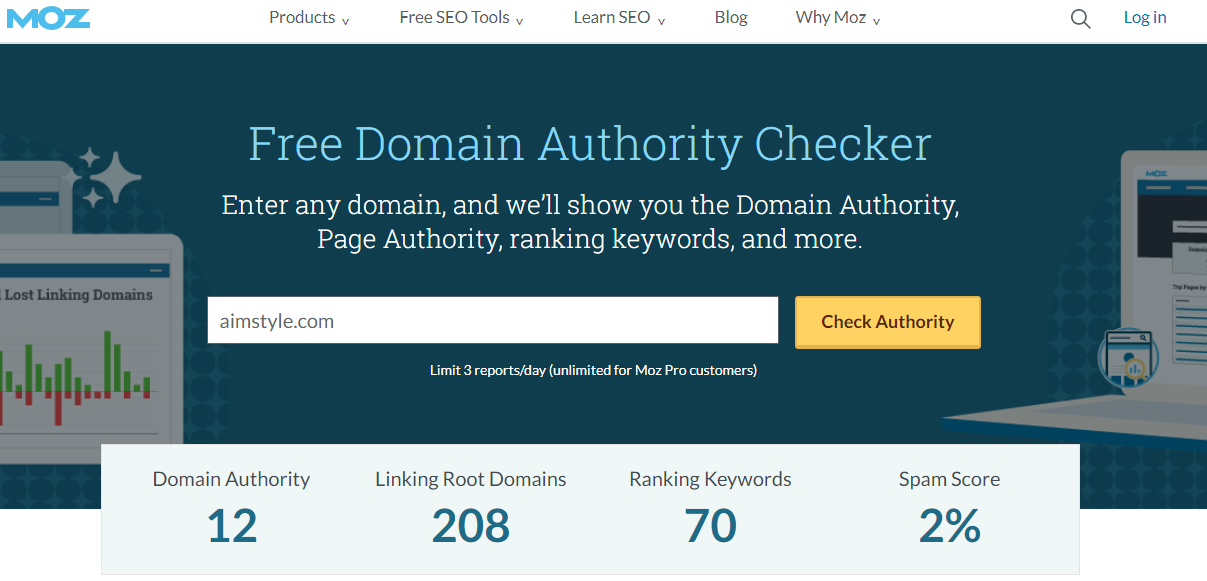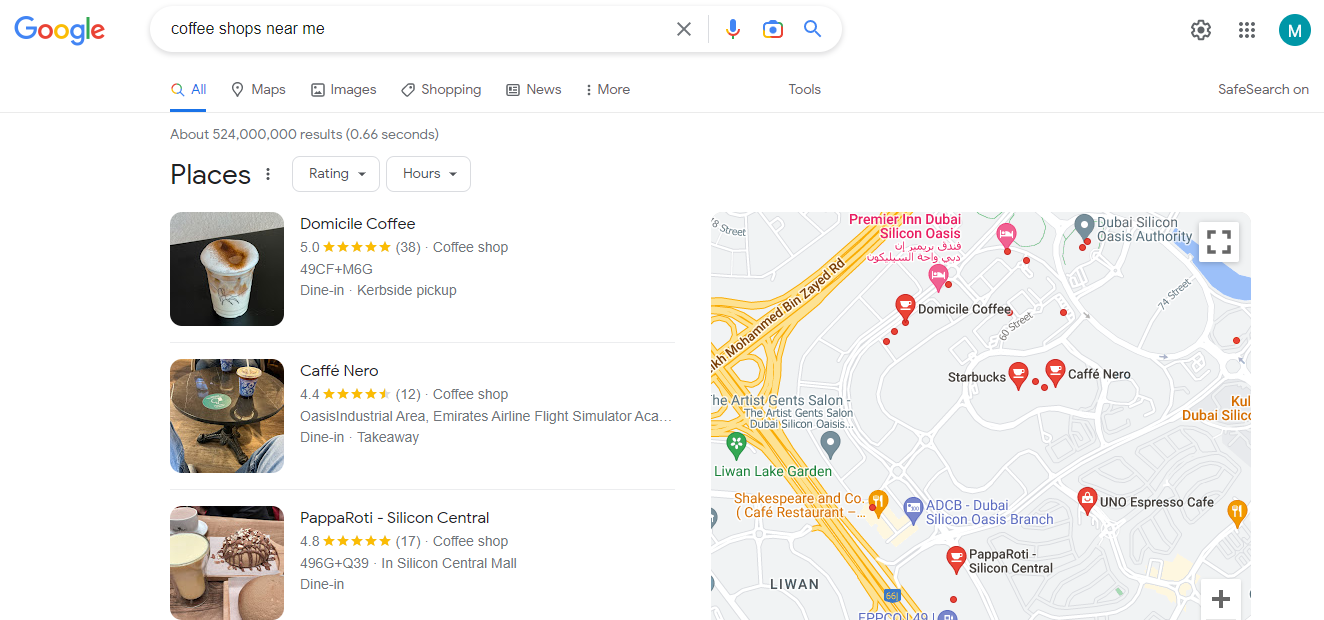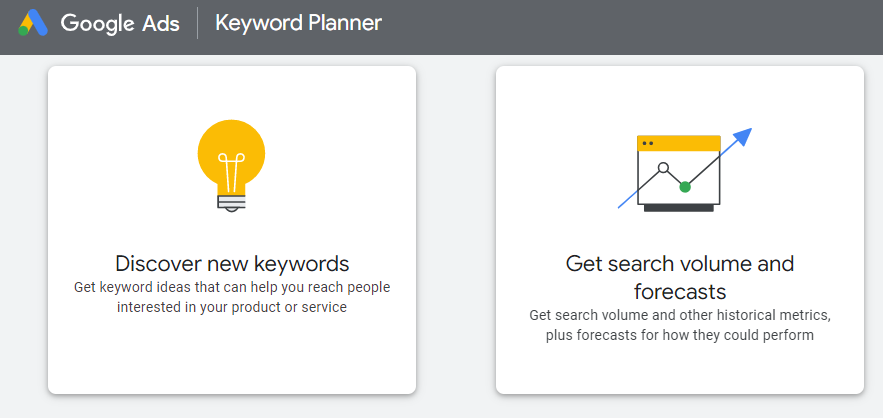The world's most popular search engine, Google, uses a complex algorithm to rank websites. What's your takeaway? To be found online, you need to know what Google wants and how it ranks your site.
Google's complex algorithm determines search engine results page rankings (SERPs). These pages are determined by the website's relevance to the user's search query and other factors.
Why is Google's Algorithm Important?
Google's algorithm is important because it's how most people find information online. No matter how good your website is, no one will find it if it ranks low on Google. Understanding the algorithm and optimizing your website for the greatest position is crucial.
Google Search Ranking Factors
We'll discuss some important things, but this is a partial list. Google's algorithm is complicated, and there are many technical parts to its ranking strategy.
Domain Authority
There are a lot of things that affect where you show up in Google's search results. A website's domain authority is one of the most important things that Google looks at when ranking sites. This depends on several things, such as how many and how good the links to the website are on other websites. Backlinks are another name for these. If your website has backlinks from high-authority pages, like Google, Wikipedia, government pages, or popular newspapers, your domain authority will be higher.
Using the Moz tool, you can check your domain's authority.

Relevance
When a user types "Coffee shop near me" into the search field, Google spiders crawl each page to find the most relevant search results. Google is assessing your website's relevance to the user's search query. To rank for "Coffee shop near me," you need the exact and relevant keywords.

Content
Content influences rankings. Without content, SERP rankings are slim. Google prioritizes websites with relevant, high-quality content. Thus, frequent website content updates are essential. Updated websites are more credible. Google's search algorithm will rank you higher if your material is relevant, high-quality, and current.
Updating and writing informative content might boost your website's rating. Google also penalizes duplicate material. Keywords will be in your article, which assesses your content's relevance to the search query. Your content must contain the terms you want to rank for, as the keyword density is vital.
User Location
The user's location is another important component that the Google ranking algorithm considers. When a user visits Google and types in "marketing agencies near me," the search engine will provide a list of websites and web pages in the user's immediate vicinity.
What Keywords Can Do For You
Google rankings depend on keywords. Keywords rank highly. They assist Google in understanding your website's content and whether it matches the user's search query. Google will only rank your site if it understands it.
However, avoid overusing keywords. Google penalizes websites that "game" the system. It would be best if you ranked enough on Google SERP without over-optimizing. Instead, use keywords naturally. This boosts rankings without Google penalties.
Research keywords. Target the most searched terms related to your business. Google Adwords Keyword Planner, SEMrush, and Moz can help you locate website keywords.

How to Improve SERP Ranking
Changes can boost your search engine ranking.
1. Improve On-Site SEO
On-site SEO? On-site SEO optimizes content, structure, and URLs to boost search engine rankings.
Simple steps can boost your on-site SEO:
- Include your keywords in meta titles and descriptions on all pages. Start with keywords.
- Good page speed. Websites should load in 1-2 seconds. Google and other search engines encourage sites that perform well.
- Make sure your connections work. Use keywords in URLs.
- Alt text and filenames optimize photos. Large graphics slow down websites and hurt user experience. Google cannot perceive photos. Google will only understand your page if it has several photos with alt text. Google gets context from alt text on images.
- Mobile-friendly webpage. Use "responsive web design" whenever possible. Your website adapts to any screen size.
- Using Yoast SEO for WordPress or All in One SEO Pack plugins can boost your on-site SEO. These plugins optimize websites.
2. High-Quality Content
Start posting content to your website now. Try to answer potential inquiries regarding your products in your content. Blogging helps you keep current and create fresh, relevant information.
Here are some tips:
- Don't just blog to get traffic—add value.
- Avoid keyword stuffing. Instead, study keywords and write around them. Consider search aim and difficulties.
- Google other search phrases to discover what information is already out there.
3. Social Media Content Distribution
Social media is crucial to web use. Search engines consider social network traffic. These links may affect webpage rankings. Make your content social media-friendly.
Tools for Progress Monitoring
Track your search engine rankings using a few tools.
1. Google Analytics
Start using Google Analytics now. It shows how visitors locate and use your site.
2. Google Search Console
Another great tracking tool is the Google search console. It's a free service that lets you track your website's performance and see what keywords people use to find it.
3. Paid Tools
Moz, Semrush, and SEO Surfer are commercial tools that can optimize content and websites. Some offer free tools, but most features and services require payment.
Digital marketing relies on Google's complicated algorithm. Understanding Google's algorithm might help you rank higher in SERPs or increase website traffic. Our tracking tools are a great start to success!
If this sounds hard, our team would be pleased to work with you to create a superb SEO plan that generates sales by considering how customers think. Get in touch with our expert.